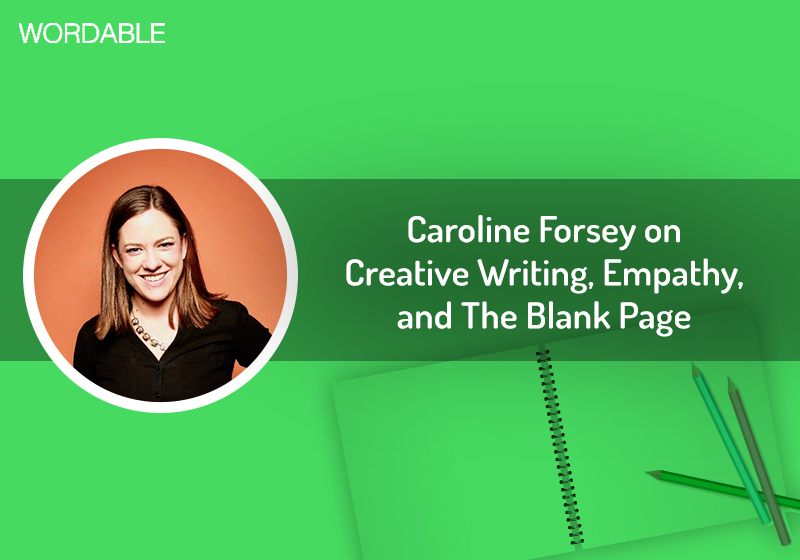
Content Crafters is an interview series where we de-construct the tools, tips, and tactics that top bloggers use to get so much work done. you’ll walk away in mere minutes with actionable takeaways you can try out right away. Let’s dive in!
Caroline Forsey is a Staff Writer (Marketing Manager) for the Marketing Blog at HubSpot.
HubSpot, as you might know, is a content marketing powerhouse. The Marketing Blog alone gets millions of visits and influences how the industry thinks about marketing. It’s Caroline’s job to manage the editorial calendar, write content, and manage the workflow for this blog.
Previous to that, Caroline worked as a copywriter at a digital agency, and before that, studied English and Creative Writing.
In this interview, we cover some of her background and interests as well as explore how she maintains high quality plus high frequency content production at HubSpot. We also walk through creativity, inspiration, and SEO.
You can find Caroline on Twitter at @cforsey1 or on LinkedIn here.

I grew up reading books and began writing on my own when I was seven, so I’ve always had a passion for content creation. I majored in English in college and knew I wanted to write creatively, but I didn’t know what that would look like, so I dabbled in a bit of everything — travel blogging while I taught English in Thailand, editing at a book publishing firm, and copywriting at a web design company.
As I searched for a “perfect fit,” I found I was turning to blog posts for most of my research.
Blog posts taught me the day-to-day of a travel blogger, how to properly conduct informational interviews, and even how to uncover my own strengths.
I began to see the appeal of writing for a blog — how the right blog post could reach anyone and truly have an immediate impact on their lives.

In college, I was used to storytelling, so switching to content marketing frustrated me initially. It was difficult for me to understand that a reader of a blog article doesn’t have the time or energy to read a full story about my day at the beach in the introduction.
Even if it was the perfect metaphor, I needed to learn the difference between writing for fun and writing for a business.
I think my passion for English equipped me to become a good content marketer. I enjoy the process of writing, and writing about a topic in a unique way that’s just a little bit different than how it’s been said before.
I’d also say my ability to empathize has helped me.
Content marketing is all about putting yourself in the readers’ shoes. I often write about challenges I don’t face in my own role, like crafting a PR campaign. For those topics, I need to empathize with the struggles a PR professional might face, and how I can help her succeed.

Organization!
As a content marketer, I’m often juggling tasks like editing guest contributors’ posts, writing my own, helping internal employees’ publish to the blog, and scheduling the editorial calendar.
Without both time-management and organization skills, it’s difficult to excel at content marketing.
I think you can still be creative while tackling SEO keywords.
There’s usually an opportunity to be creative in the introduction especially, by either including a metaphor or an explanation on why the search term matters for a business’s bigger picture.
Plus, an SEO-keyword-driven strategy just means you need to include a certain search term in your post, but it doesn’t limit how you structure your post, or what else you include, so there’s room for creativity there.
You need both quantity and quality to have a successful content strategy.
Consistently publishing content is important for demonstrating your brand’s reliability. It’s also helpful for ranking on search engines and being seen as a thought leader. But quality work is still critical for engaging an audience and seeing long-term results.
When I was first hired as a writer at HubSpot, my editor focused on the quality of my work. She didn’t expect me to write one post a day — instead, we worked on improving my writing skills. Over time, it became easier to write high-quality work quickly.
Once I was “fully ramped”, I was expected to write a high-quality post once a day, solving for both quality and quantity.
The most time-consuming aspect is probably when I have a blank Google Doc and have no idea where to begin with a post.

Once I get going, I can finish a post in an hour — the tricky part is doing the research and gathering the information I need, and deciding how I want to structure the piece, all while working under the pressure of a tight deadline.
I’d probably be writing a novel. It’s a lifelong dream of mine.
I often turn to Harvard Business Review for content inspiration — I admire the high-quality of their content. HBR‘s pieces make me feel like I’m getting the full scoop on a topic.
In general, I’m mostly inspired by books. I’ll read a book that is particularly moving, uplifting, or thought-provoking, and I’ll immediately be reminded why I love the craft of writing in the first place. I’m reading The Nightingale by Kristin Hannah right now, and I highly recommend it.